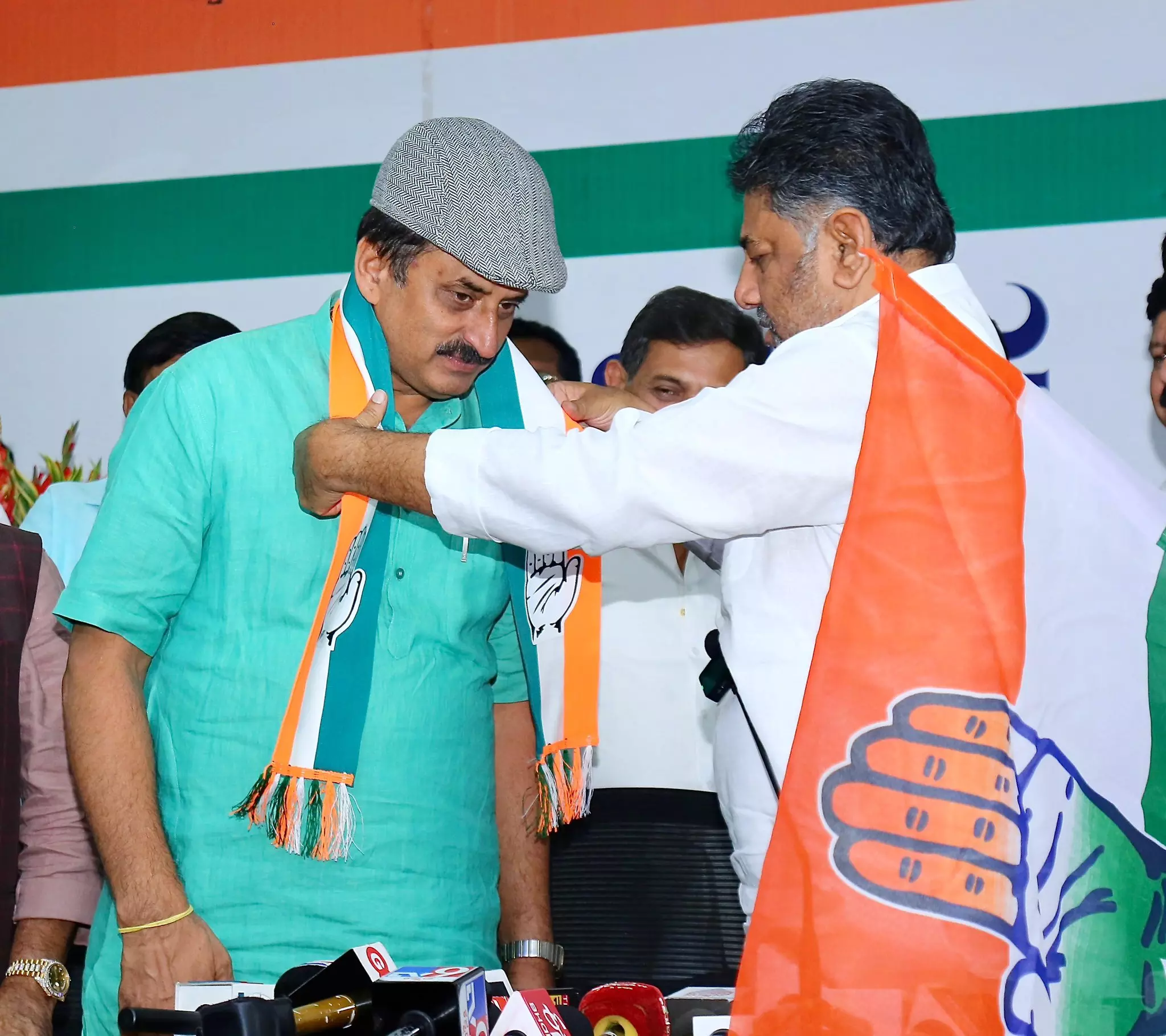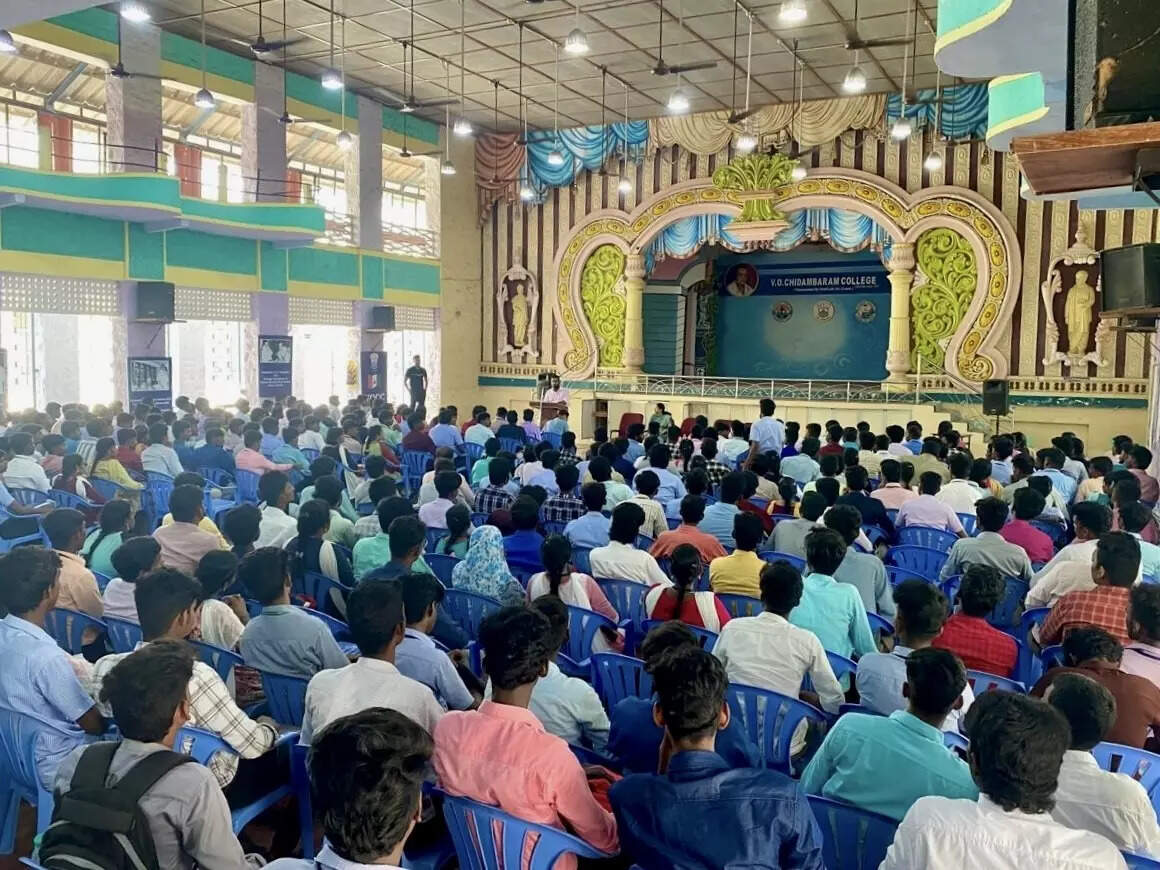Ladakh-based activist Sonam Wangchuk, along with more than 100 other protestors, was detained on the northern border of Delhi late on Monday (September 30). In a post on X, Wangchuk wrote, “We were on a most peaceful march to Bapu’s Samadhi in the largest democracy in the world, the mother of democracy… Hai Ram!”
The ruling Aam Aadmi Party (AAP) said Delhi Police prevented Chief Minister Atishi from meeting the protestors on Tuesday. Lok Sabha Leader of Opposition Rahul Gandhi said in a post on X, “The detention of Sonam Wangchuk ji and hundreds of Ladakhis peacefully marching for environmental and constitutional rights is unacceptable.”
In a video shared on his X account, Wangchuk said, “A notification from the Delhi Police Commissioner has imposed a Section 144-like order, which says more than five people cannot gather publicly between September 30 and October 6. It seems as if they do not want the march to happen, although it was completely peaceful.”
The march from Delhi to Ladakh began in September, to discuss demands for greater autonomy in Ladakh’s administration with the Central government. Here is why.
Who is Sonam Wangchuk?
Wangchuk is an engineer and innovator of sustainable products. In 2018, he was awarded the prestigious Ramon Magsaysay Award, in recognition of “his uniquely systematic, collaborative and community-driven reform of learning systems in remote northern India, thus improving the life opportunities of Ladakhi youth, and his constructive engagement of all sectors in local society… setting an example for minority peoples in the world.”
He was believed to be the inspiration for a character played by actor Aamir Khan in the 2009 Hindi film 3 Idiotsbringing further recognition to his work.
Why is Sonam Wangchuk marching to Delhi?
In recent years, Wangchuk has flagged issues related to autonomy in the administration of Ladakh. He wrote a letter to then Union Tribal Affairs Minister Arjun Munda around 2019, on granting Scheduled Area status to Ladakh under the Sixth Schedule of the Indian Constitution.
Munda responded with a letter saying his ministry was “seized of the matter” and it had communicated a proposal to the Ministry of Home Affairs. However, there was no subsequent discussion on the subject with the leaders of Ladakh, Wangchuk said in 2023.
Students-led protests for the demand in 2019 saw support from former MP Thupstan Chhewang, who then created the Leh Apex Body (ABL). Organisations in Kargil also came together to form the Kargil Democratic Alliance (KDA).
Wangchuk has been repeating that protections under the Sixth Schedule were an election promise that the BJP made in 2019, and the Government of India has to keep its word.
What’s the demand for the Sixth Schedule in Ladakh?
The Sixth Schedule under Article 244 of the Indian Constitution provides for the formation of autonomous administrative regions called Autonomous District Councils (ADCs).
ADCs have up to 30 members with a term of five years and can make laws, rules and regulations on land, forest, water, agriculture, village councils, health, sanitation, village- and town-level policing, etc. Currently, there are 10 ADCs in the North East, with three each in Assam, Meghalaya and Mizoram, and one in Tripura.
Wangchuk said the people of Ladakh have demanded the decentralisation of power as they believe that “lower levels of bureaucracy” may have been “influenced by industrial powers and business houses”, who wanted “mining to take place in every valley here”.
What are the other reasons for the protest?
On March 6 this year, two days after talks between the Union Ministry of Home Affairs, the ABL and KDA reached an impasse, Wangchuk and others began a fast in Leh. For 21 days, he survived only on water and salt and slept outdoors in below-freezing-point temperatures.
Subsequently, a planned ‘Pashmina march’ to the China border was cancelled, with Wangchuk claiming the administration told them Section 144 would be imposed. It was to spotlight issues such as the loss of grazing pastures for Pashmina goats in the Leh region.
According to Wangchuk, the shepherds who have traditionally reared the famed goats for their expensive and highly sought-after wool have been affected. First, the loss of land to corporations (he did not name any) for setting up large industrial units or solar plants; and two, the activities of the Chinese along the Line of Actual Control (LAC).
Wangchuk says that over the last four years, shepherds have on several occasions run into Chinese soldiers who do not allow them to go beyond a certain point, where they have traditionally taken their goats to graze.
Further, immediately after the special status of Jammu and Kashmir was revoked with the abrogation of Article 370 and the erstwhile state was split into two UTs, many in Leh supported the move since the region had been demanding UT status and separation from the administrative set-up of J&K.
However, Ladakhis soon began to feel the loss of significant powers of the autonomous hill development councils, and the shortage of jobs after being delinked from the J&K recruitment boards.
The latest ‘Delhi Chalo Padyatra’ was organised by the ALB, with a four-point agenda for the support of Ladakh’s statehood, extension of the Sixth Schedule, early recruitment process along with a public service commission for Ladakh and separate Lok Sabha seats for Leh and Kargil districts.






























































